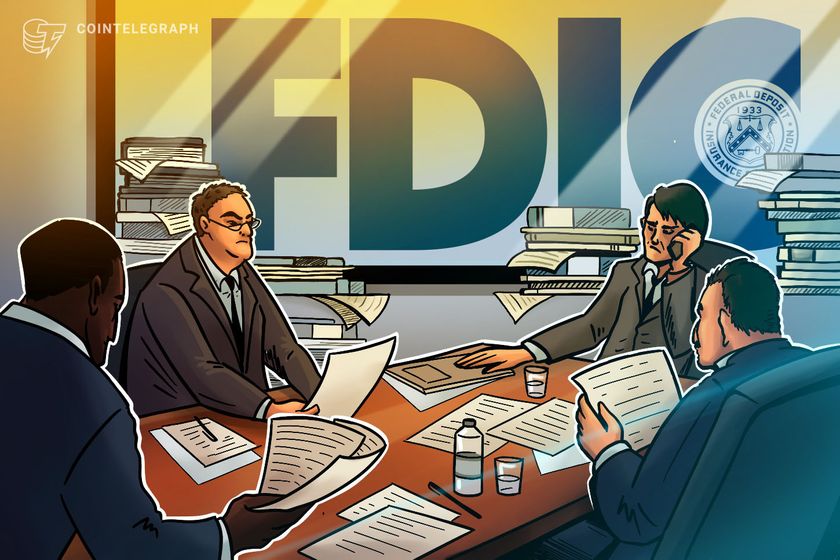

The US Federal Deposit Insurance Corporation, an independent agency of the federal government, is reportedly moving to stop using the “reputational risk” category as a way to supervise banks.
According to a letter sent by the agency’s acting chairman, Travis Hill, to Rep. Dan Meuser on March 24, banking regulators should not use “reputational risk” to scrutinize firms.
“While a bank’s reputation is critically important, most activities that could threaten a bank’s reputation do so through traditional risk channels (e.g., credit risk, market risk, etc.) that supervisors already focus on,” notes the letter, first reported by Politico.
According to the document, the FDIC has completed a “review of all mentions of reputational risk” in its regulations and policy documents and has “plans to eradicate this concept from our regulatory approach.”
Reputational risk and debanking
The Federal Reserve defines reputational risk as “the potential that negative publicity regarding an institution’s business practices, whether true or not, will cause a decline in the customer base, costly litigation, or revenue reductions.”
The FIDC letter specifically mentioned digital assets, with Hill noting that the agency has generally been “closed for business” for institutions interested in blockchain or distributed ledger technology. Now, as per the document, the FDIC is working on a new direction for digital asset policy aiming at providing banks a way to engage with digital assets.
The letter was sent in response to a February communication from Meuser and other lawmakers with recommendations for digital asset rules and ways to prevent debanking.
Industries deemed as “risky” to banks often face significant challenges in establishing or maintaining banking relationships. The crypto industry faced such challenges during what became known as Operation Chokepoint 2.0.
The unofficial Operation led to more than 30 technology and cryptocurrency companies being denied banking services in the US after the collapse of crypto-friendly banks earlier in 2023.
Related: FDIC resists transparency on Operation Chokepoint 2.0 — Coinbase CLO



